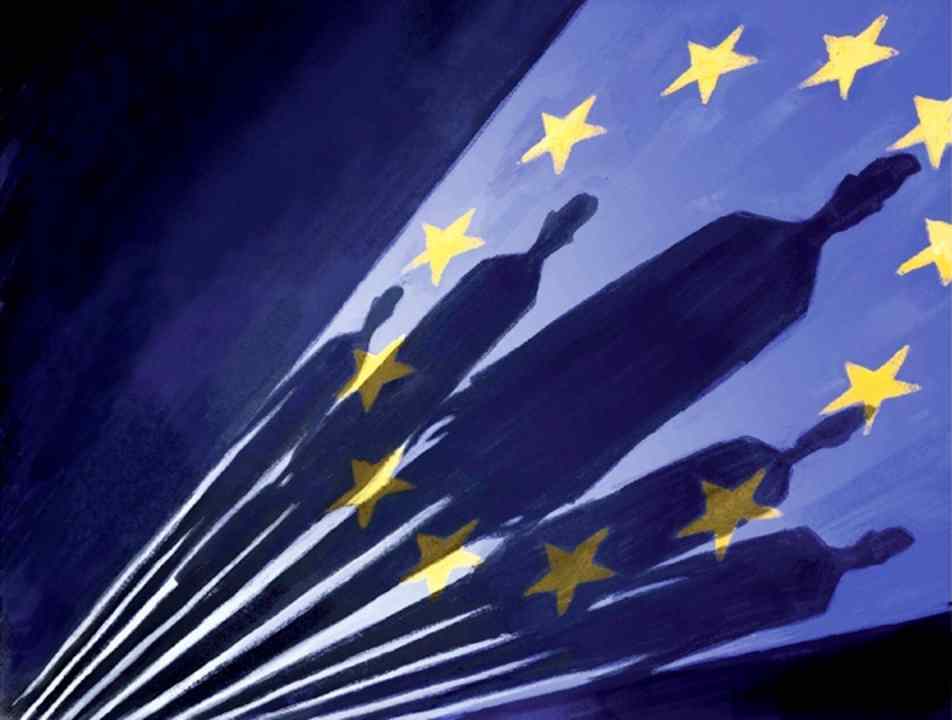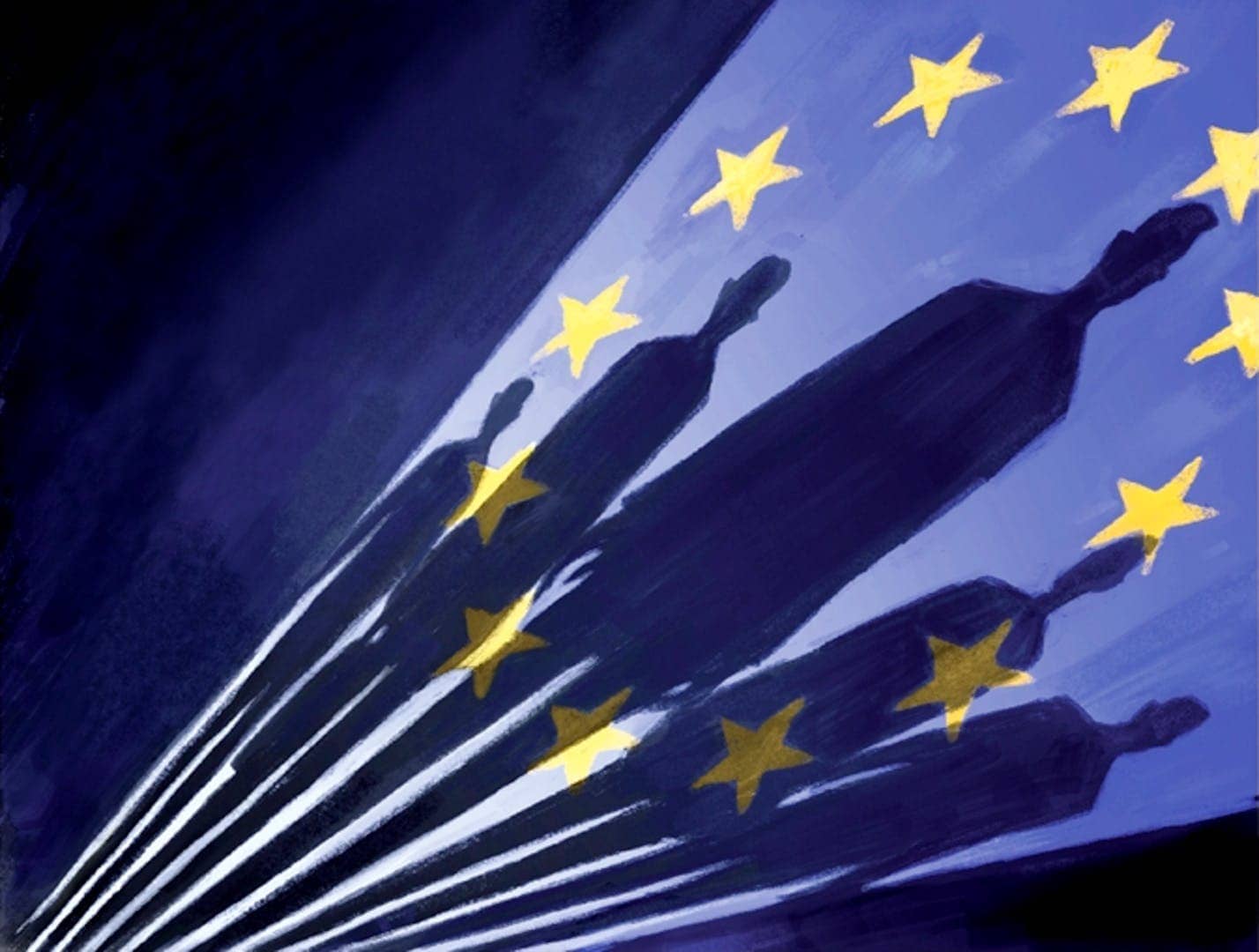Rather like Germany with its ill-starred ‘Drive to the East’ in the 19th and 20th centuries, one suspects the EU is quietly regretting its keenness to absorb most of the states of eastern Europe in the early 2000s. If not, events in Poland and Hungary this week may well persuade them.
For a long time, national governments in the older EU states have more or less willingly subscribed to two articles of faith: the complete supremacy of EU law over their national law, including their constitutions, and the unchallengeable power of the EU Court of Justice — not only to expound EU law but also to extend and develop it, and to determine conclusively how far the competences of the EU run.
There are reasons for this surprising submissiveness. The EU’s founding members had recently fought each other; their elites at the time mistrusted popular sovereignty as a potential cause of a return to the horrors of conflict. This helps explain why their governments have consistently seen supranational control organised on technocratic lines, legally supreme and discreetly insulated from national voter pressure, as a price worth paying.
The Polish and Hungarian governments are freely elected; and the issues involved, especially immigration in the case of Hungary, are hot-button topics about which electors feel strongly
However understandable in the West, such feelings cut little ice further east. Having escaped 30 years ago from a supranational state apparatus that was indeed technocratic, all-powerful and all too successfully insulated from popular pressure, the nations of eastern Europe understandably have no big desire to go back to it.
In the last few months, Poland has increasingly made this clear. Ordered by the European Court in two separate judgments to change its internal judicial system to satisfy EU impartiality norms and to shut the Turów coal-mine on environmental grounds, it demurred, essentially on the ground that the first was none of the EU’s business and the second was necessary to keep the lights on. Its constitutional court then scandalised Brussels and the euro-elite with a judgment that would have been unexceptionable anywhere except in the EU. This was to the effect that within Poland the Polish constitution ruled supreme and, whatever the EU might say about the supremacy of EU law, it could not be overridden by the stroke of a Brussels legislator’s pen.
Brussels hopes to contain this insubordination. It has sought to isolate Poland as a single rogue state which threatened the rule of law throughout the EU; meanwhile, its court has issued a stern warning and mulcted Poland in daily fines totalling €1,500,000 for daring to disobey its orders. But last Monday things got worse.
Poland, having declined to pay the EU fines (which Brussels has no means of enforcing save by cutting back on the transfers it makes for the benefit of the Polish people), asked its constitutional court to declare — which it almost certainly will — that these also are contrary to the Polish constitution. And on the same day, the virus of independent-mindedness spread to Hungary.
Much troubled by migrants seeking to cross irregularly from Serbia, the Hungarian government had introduced stern rules allowing it to stem what it saw as undeserving asylum claims and physically to keep out applicants unless and until accepted. The EU court, secure in Luxembourg where such pressures were not felt, in December last year ordered the removal of these controls as contrary to EU law.
Budapest has responded in the manner of Poland by ignoring the order and referring the matter to its own constitutional court. It has pointed out that obeying the EU’s orders would force it to admit large numbers of migrants whose claims it saw — one suspects with some reason — as bogus or unmeritorious. Once in Hungary they would, it said, be effectively undeportable and hence gain de facto permanent residency. This, it continued, was contrary to the sovereignty of the people under the Hungarian constitution, and within Hungary it was the latter that had to prevail. The case is on the court agenda for next Monday: we do not know when judgment will be given, but it may well be in the government’s favour.
For the moment the EU continues to maintain a hard line. On Tuesday this week, indeed, its court issued yet further marching orders: to the Polish government to change its rules for the appointment of criminal judges to comply with EU rules, and to Hungary to abandon its criminalisation of aid given to what it sees as migrants with no plausible claim to asylum. But how much longer can it continue?
For one thing, whatever you may think of the rightness or wrongness of the actions of the Polish and Hungarian governments (and there are very respectable criticisms that can be levelled against both), there is much to be said for their legal logic. However piously the EU elites and the Court of Justice talk of the need for primacy of European law, the constitution of a nation should not lightly be construed as permitting its government to hand to an outside body the right to abrogate its provisions at will.
But in any case, legal arguments here are less important than political and practical ones. And here the EU is in something of a bind. The Polish and Hungarian governments are freely elected; and the issues involved, especially immigration in the case of Hungary, are hot-button topics about which electors feel strongly. These electors are likely to resent seeing the views of the government they elected overruled from a distance by Brussels. Further, the EU would do well to note that whatever it, or its Court of Justice, tells Poland or Hungary to do, it is a racing certainty that in the end both will make up their own mind whether to obey.
The EU can of course continue its attempts to wear down the dissenters. But this risks two serious image problems: namely, appearing either heavy-handed and bossy, or alternatively — if Warsaw and Budapest get away with politely ignoring it — plain silly. Brussels must realise that it has some serious thinking to do, which might involve demonstrating rather more flexibility and finesse than it has shown so far.







Comments